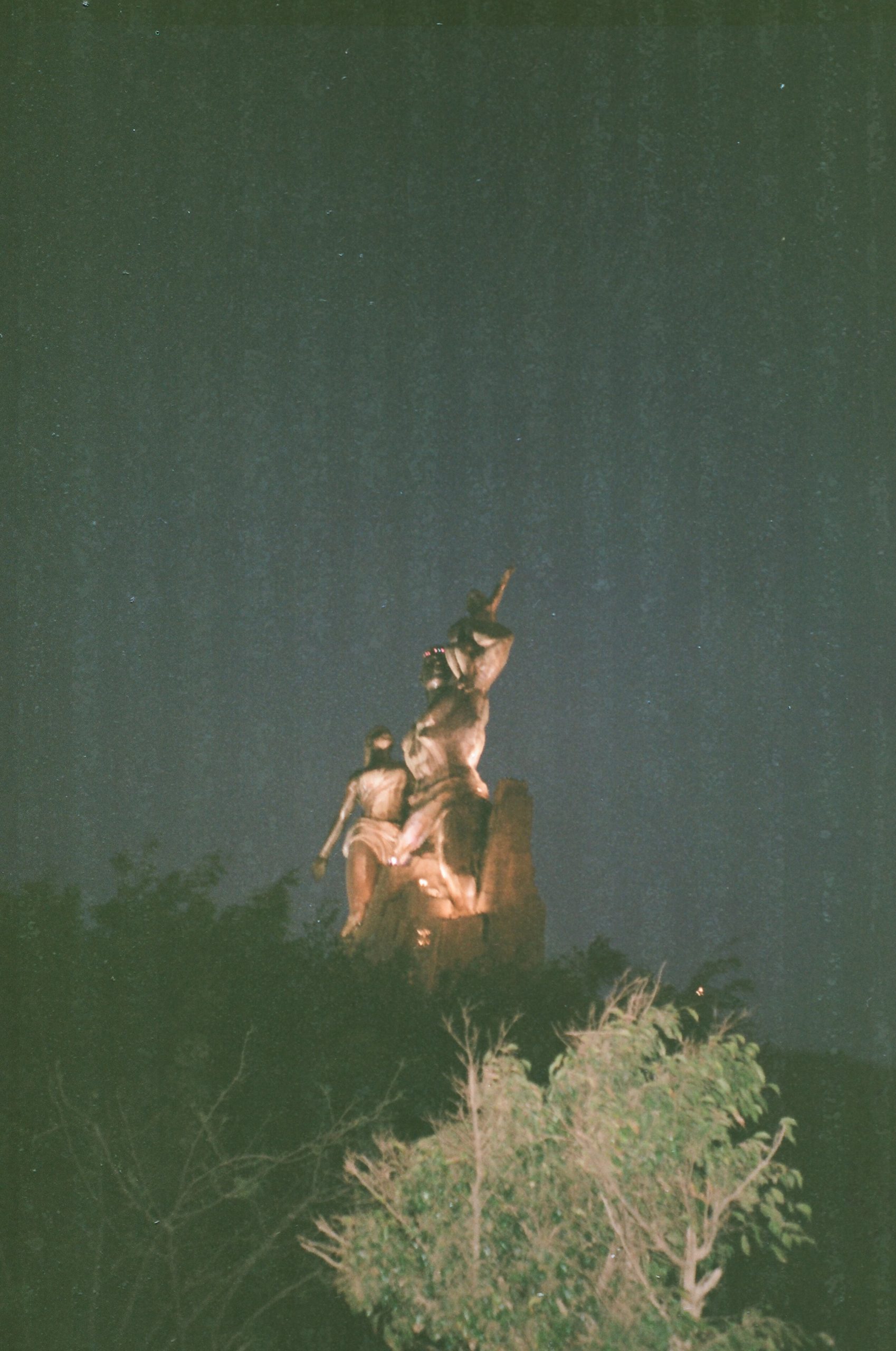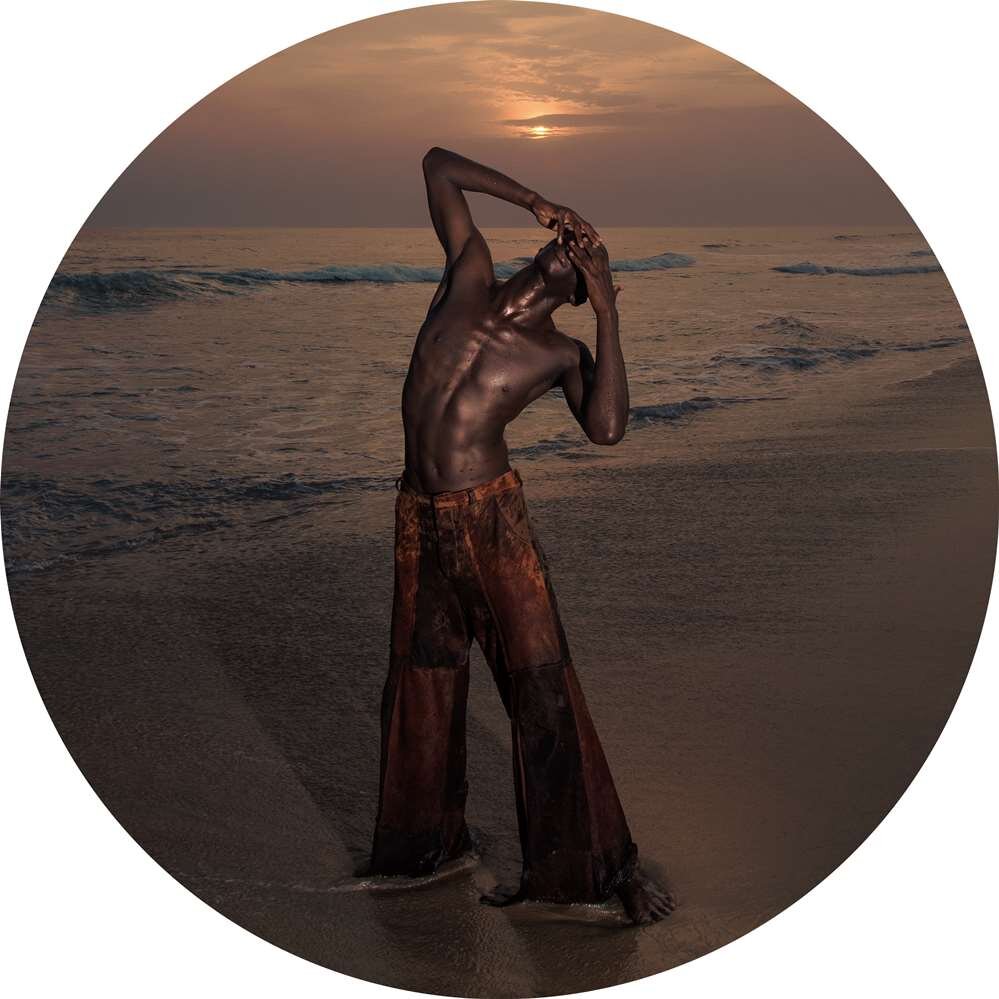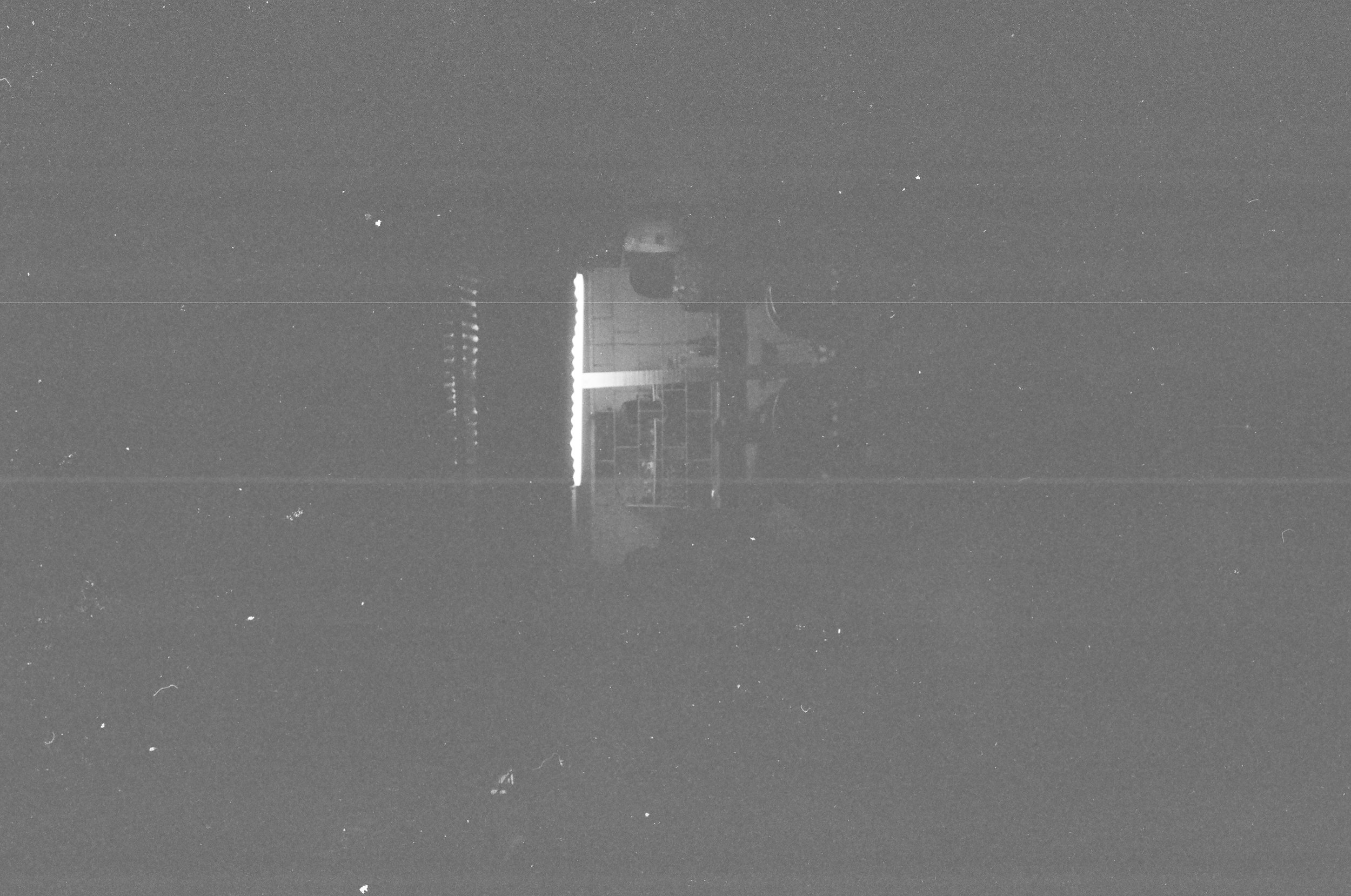Dadi is an Ivorian visual artist and creative director based in Grand-Bassam, Côte d’Ivoire. Nuits Balnéaires is his artist name — translating to seaside nights in English — and it is also his main project in development originally inspired by a poem he wrote. Balnéaires derives inspiration for his work through poetry, spirit of water, nature, ocean nights, and his study and observation of civilisations.
“When exploring the waters and landscapes along the Ivorian coastline, [he] often questions and imagines the centuries of history that the landscapes and waters must have seen. Creating works with an approach that visually punctuates the everyday with pathos and deep understanding through an emotive lens; relatable and sentimental, Balnéaires also aims to explore through photography “how the passing of time and the impact of people (pollution, infrastructure creation and developments) continues to transform [the Ivorian] coastlines”.
His latest series titled Scent of Appolonia — which sees the artist and photographer returning to the neighbourhood he grew up in — is brimming with Balnéaires’ distinct visual language of sentimentality. Light-painted and immortalised moments charged with intimate affect. The series is described as:
the immortalisation of the memories, poetry and piety which the artist has observed across these landscapes. Through this body of work, the artist pays tribute and illustrates his own spiritual journey through Appolonia (Land of the Apollo – N’zima, known for occupying the coastlines from Axim to Grand-Bassam since the 13th century).
As I look through his photography, I am filled with wanderlust and memories of my own trip to Côte d’Ivoire, Abidjan back in 2018. I remember its vastness, not only in geographic territory, people and possibility but also in the imaginative creativity pulsing through it. And these thoughts are what lead me into my conversation with Nuits Balnéaires.
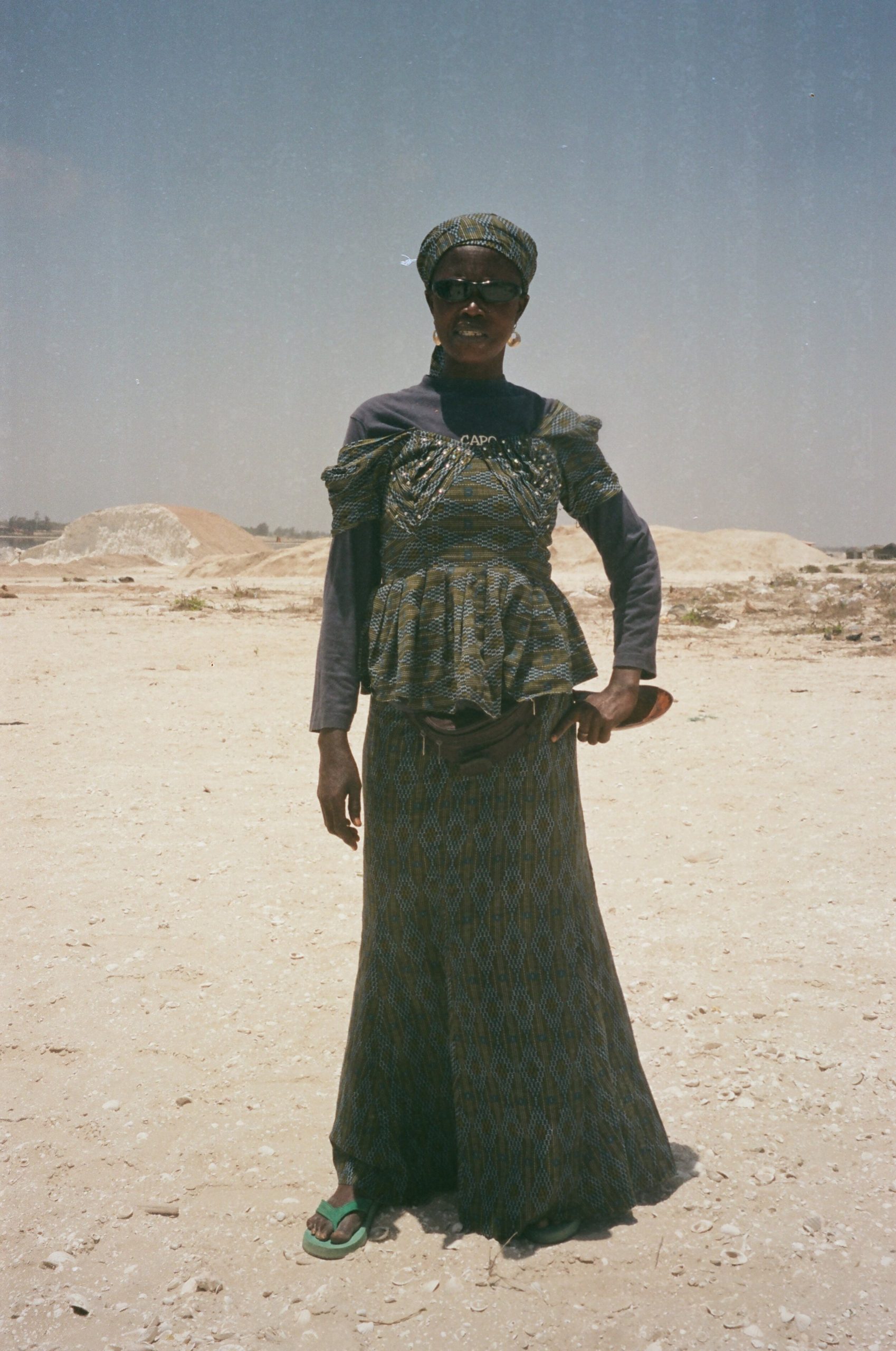
There’s a particular poetics in how you’ve decided to name yourself artistically as Nuits Balnéaires, which translates to seaside nights in English. Your bio says that the naming was inspired by a poem you wrote and that you derive inspiration for your work through the spirit of water, nature and nights.
When I think of the natural elements you have rooted your poetic naming in; the sea and the night. I think of mystery, a communion with spirituality, sensuality, an evocative and dangerous creative energy and so on. What do they mean to you and why have you chosen Nuits Balnéaires as your name for creating?
Nuits Balnéaires: Nuits Balnéaires indeed comes from this poem that came to me one night as a revelation. It is a poem about depression, cataclysm, troubled moments and a newfound peace. I had the vision of looking at a horizon and seeing miniature catamarans sailing on the seaside nights of Sao Tomé and Principe.
It is a poem that echoes my fascination with the energy and spirit of the Gulf of Guinea and this space where I find my balance. I feel something very strong from a spiritual point of view, hence the omnipresence of water and the sea in my work.
The term Nuits Balnéaires expresses the quintessence of this feeling — this space where all the natural elements take all their power.
Would you say that there are certain affective, thematic or explorative sentiments and sensibilities that exist throughout all of your photographs?
Nuits Balnéaires: Photography is very much a tool to share the sensitivity I carry in me, and each work represents a piece of a vast puzzle which attempts to give responses to [the] cultural, existential or spiritual questions I have. Topics like death, [the] after-life, as well as the movement and evolution of civilisations along Gulf of Guinea coastline fascinate me.
In 2019 I moved to Grand-Bassam, the first colonial capital of Ivory Coast but also an important historic and cultural centre in the region. This is where the first contacts, exchanges and treaties took place over the centuries between the settlers and the Kings of this land.
My work here helps me to understand the mechanisms that led us to the Ivorian civilisation we know today and explode the geographical borders inherited from the colonial era. For instance with my recent work Scent of Appolonia, I pay tribute to the forgotten Appolonia, a kingdom that was extending from Axim (in contemporary Ghana ) to Grand-Bassam Côte d’Ivoire.
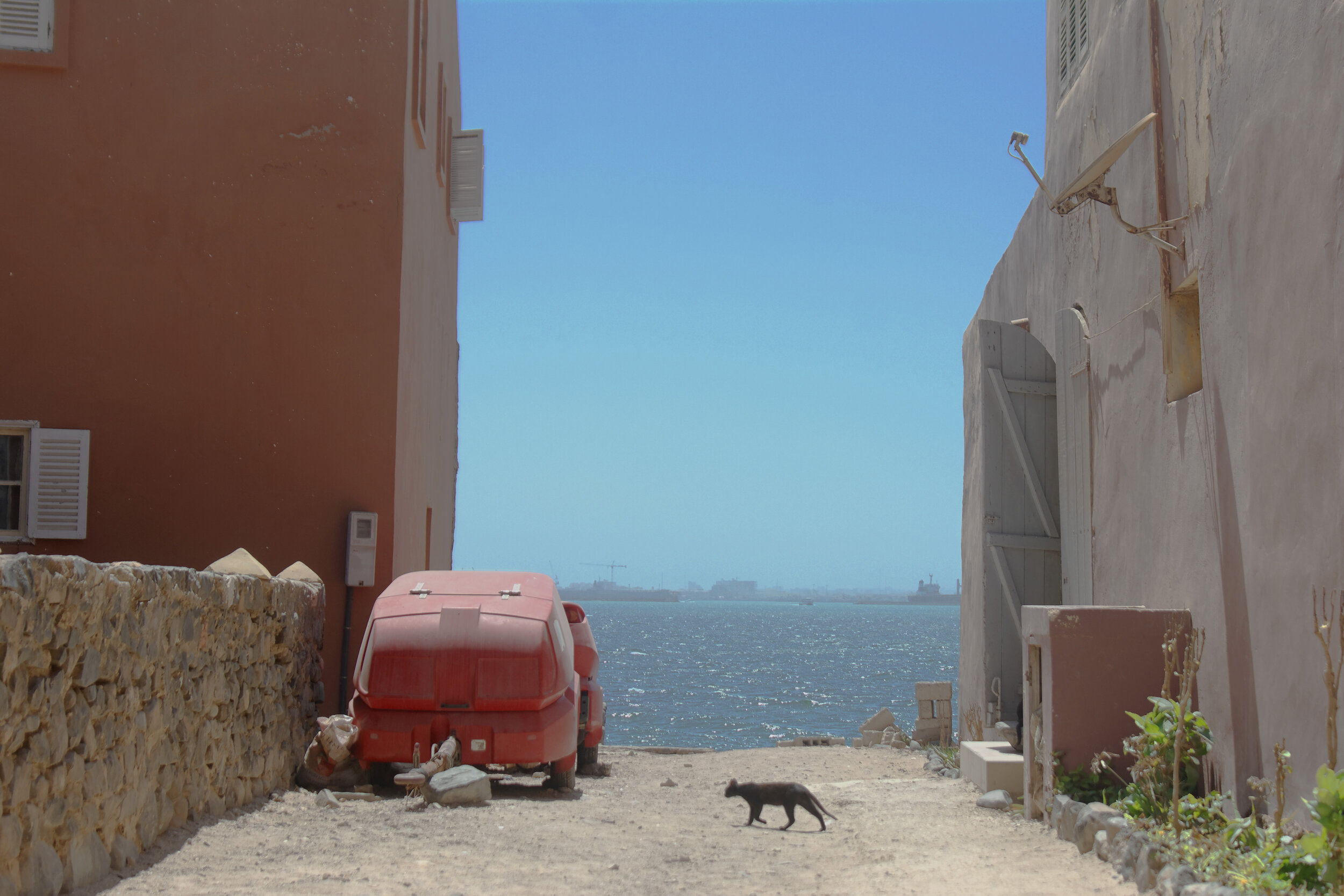
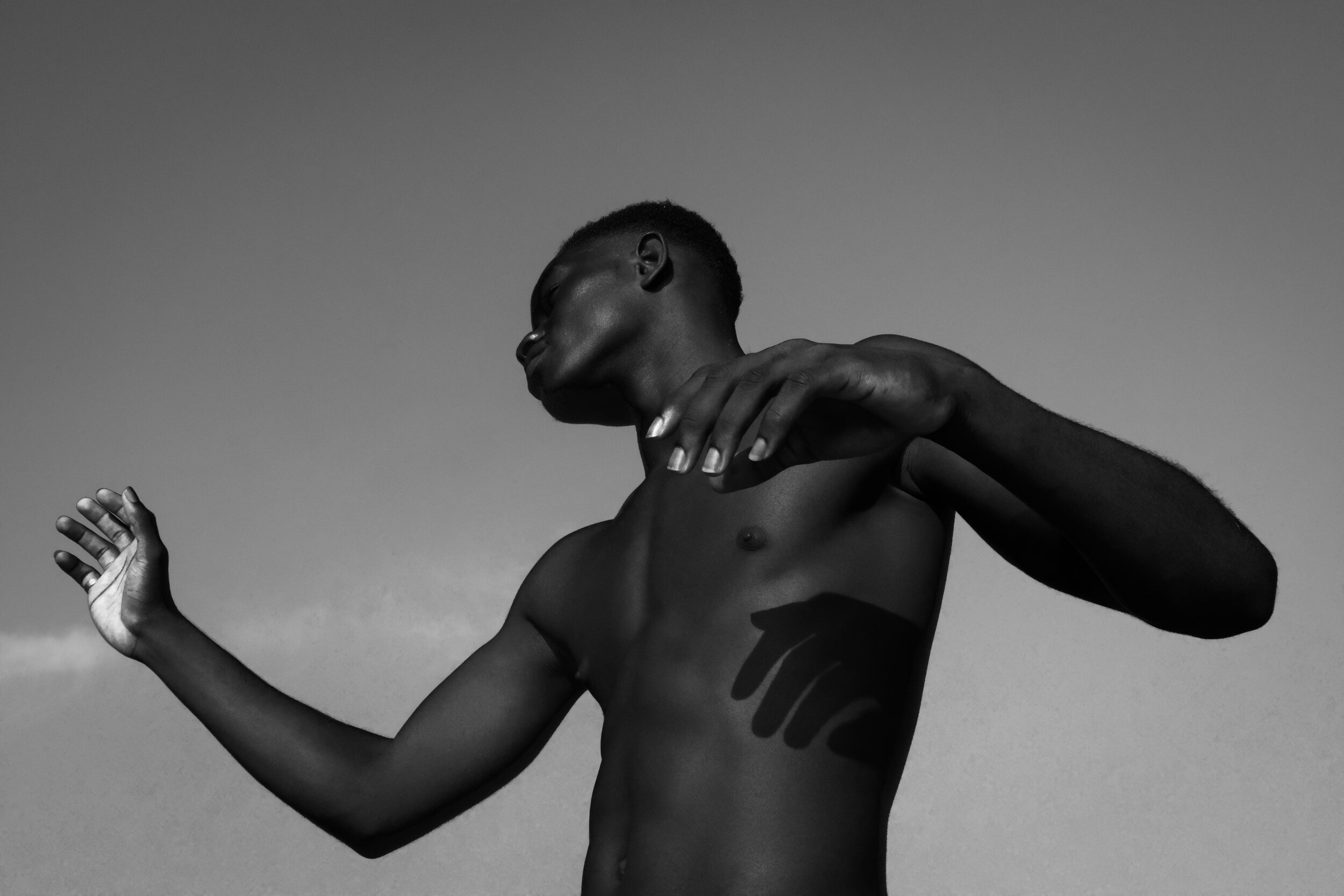
Last year, you and Bayo Hassan Bello under your duo name NOMMOS, were the 2020 recipients of the Goethe Institut and Prince Claus Fund. Death is the space that nature needs to be alive, was your experimental film response to the call for proposals to support cultural and artistic responses to environmental change.
Can you tell me more about how you approached the making of it? So your creative methodology as a way of speaking to your artistic practice?
Nuits Balnéaires: The idea is to develop something that is inspired by the cultural and historical context of Tanokoffikro. A lot of folklore and family archives appears in the work.
It will certainly be a fruit of the dialogue between our complementary perception of life, and the strong and brilliant curatorial background of Bayo Hassan Bello that will certainly have an impact in the final outcome.
Memory and the nation state project are deeply entangled. However, the way we are in relationship with memory that eventually becomes History, usually forgoes the little details filled with the lyricism of daily existence.
The affective details of a place and space in the form of its sounds, sights, tastes etc. What are some of the memories you remember most vividly about growing up in Côte d’Ivoire and how has the shape of your memories in relation to your country affected/effected your visual language and creativity?
Nuits Balnéaires: The road trips between Abidjan and Grand-Bassam with my father greatly influenced my aesthetics and my sensibility. These are moments I still cherish today. We went on long journeys very often at sunset crossing beautiful landscapes — I was already obsessed with colours and shapes by that time. Often on these trips there was rumba, highlife, salsa and sometimes Mozart or Beethoven playing on the radio.
This Ivorian cultural eclecticism is fundamental and very present, both in my creation and in that of the local creative scene. By observing creatives such as Kader Diaby (Olooh), Asna and Anta (Kaalag), Aristide Louah (Kente Gentlemen), Keren Lasme (Iefo) or Lafalaise Dion, you will soon see the multitude of different technique and inspirations.
It’s a country where inspiration abounds with a creative scene in full effervescence. This is Côte d’Ivoire for me, a land of precious multiculturalism.
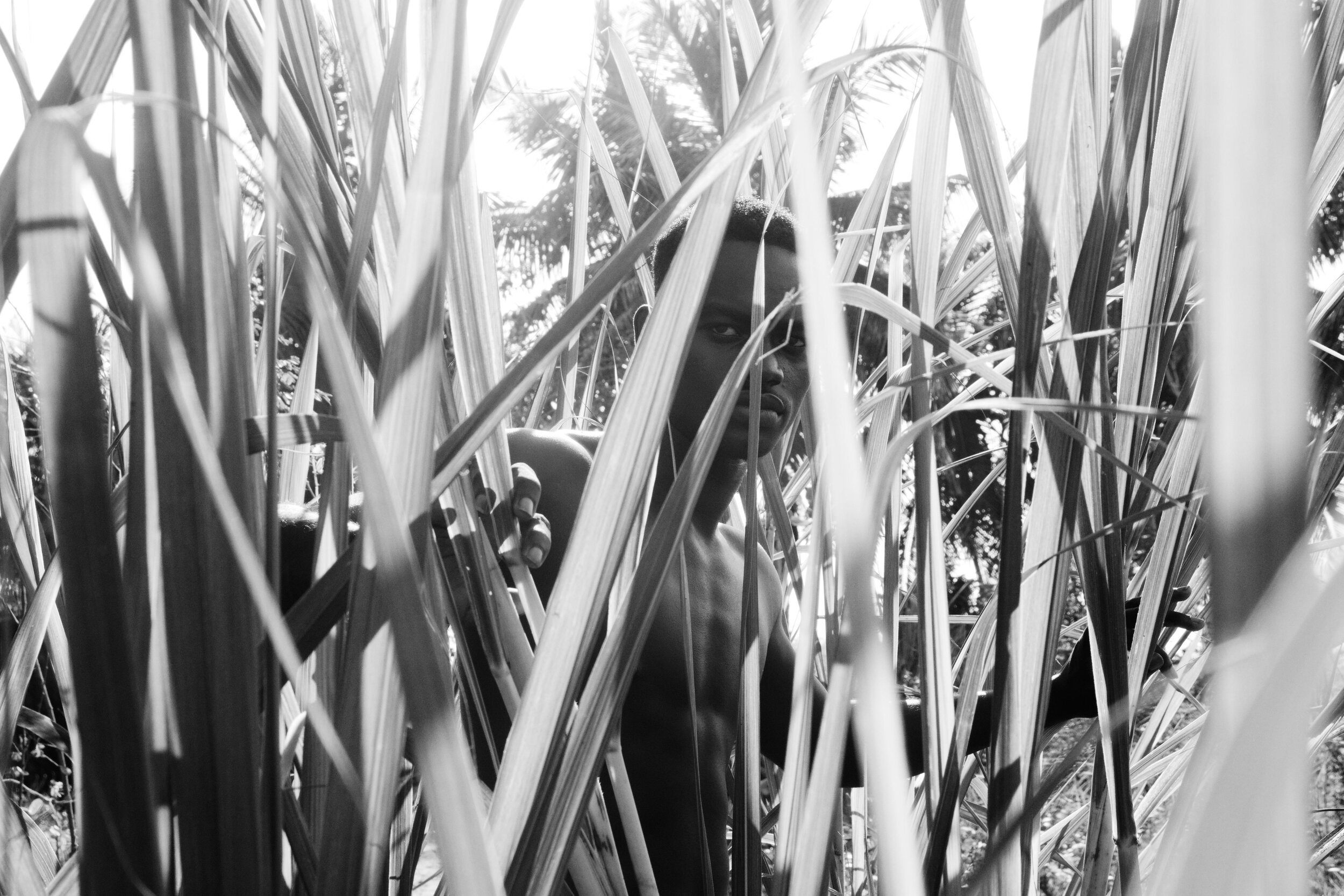

Who are some of your favourite photographers working from the African continent currently?
Nuits Balnéaires: Kader Diaby, Joana Choumali, Maimouna Gueresi, Akoh, Keren lasme, Ngadi Smart, Ofoe Amegavi, Flurina Rothenberger, Emilie Régnier, Nii Obodai.
Can you tell me bit about the La Sunday parties which used to be held in the garden of the Donwahi Foundation in Abidjan, but stopped last year February due to COVID-19.
How did the intervention start and what has it been like without that space of creative and energetic exchange?
Nuits Balnéaires: La Sunday is the result of Abidjan’s cultural effervescence. The project was born from a collaboration between 5 Ivorian friends Aziz, Fayçal, Black Charles, Jeune Lio and Lizzie.
It unites the local youth and is the place where many connections and artistic collaborations were born. It is a platform that has brought a lot of visibility to the local scene in recent years, both locally and regionally because the reputation of Sunday has been exported beyond borders.
